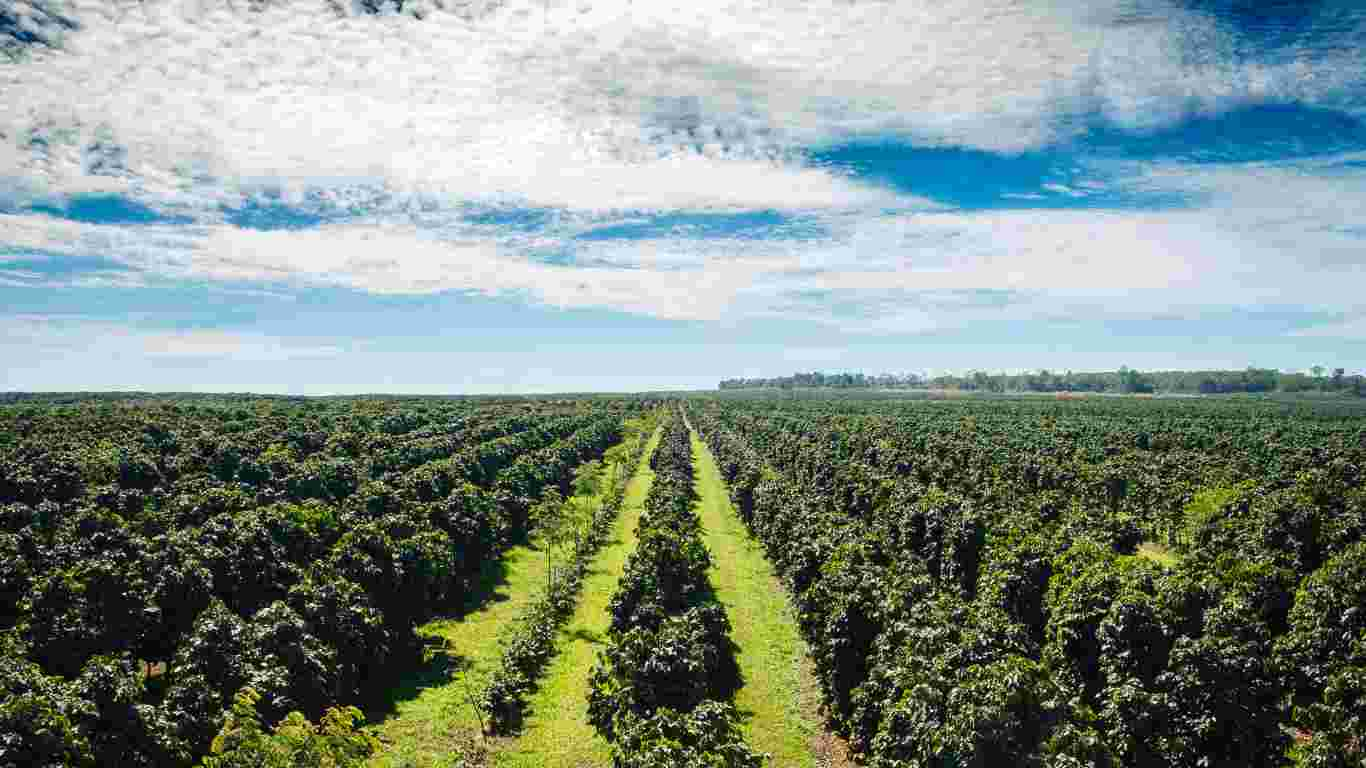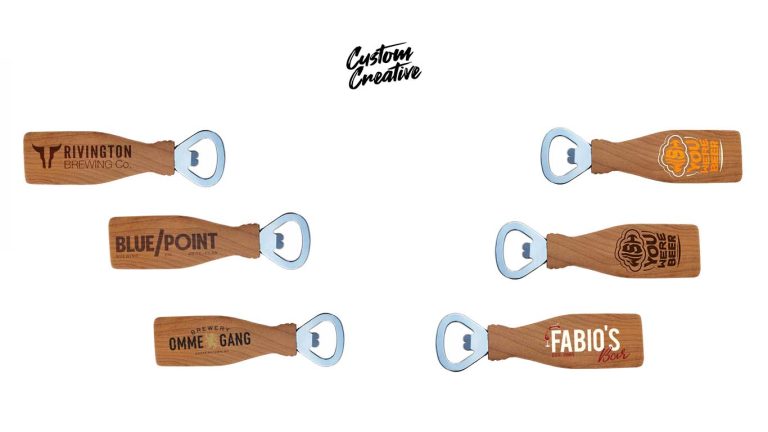Is Coffee Vegan? Unveiling the Truth About Your Brew
When it comes to your morning brew, have you ever wondered “is coffee vegan”? It’s an important question for those who adhere to a vegan lifestyle. Let’s delve into the truth behind this popular beverage and explore what makes coffee truly vegan.
Coffee beans themselves are derived from the Coffea plant, making them naturally vegan. However, the vegan status of coffee beverages can be compromised by non-vegan additives such as milk, honey, or cream. To ensure your cup of joe aligns with vegan principles, it’s essential to understand the ingredients and production methods used, as well as the ethical implications of coffee consumption.
In this article, we’ll take a closer look at the veganism in coffee production, navigating coffee additives and flavorings, health considerations for vegan coffee drinkers, and the global impact of consumer choices. We’ll also explore vegan options at popular coffee shops like Starbucks and discuss sustainable coffee consumption and waste reduction. By the end, you’ll have a better understanding of how to enjoy a vegan-friendly coffee experience and contribute to a more sustainable coffee industry.
Is Coffee Vegan? Core Insights:
- Coffee beans are naturally vegan as they are derived from the Coffea plant.
- Non-vegan additives like milk, honey, or cream can compromise the vegan status of coffee beverages.
- Choosing plant-based milk alternatives and vegan-specific coffee additives ensures a vegan-friendly coffee experience.
- Vegan coffee consumption reflects a commitment to sustainability, ethical practices, and animal welfare.
- Supporting brands that offer vegan options and prioritize environmental responsibility contributes to a more sustainable coffee industry.
Understanding Veganism in Coffee Production
To ensure that your coffee aligns with vegan principles, it’s crucial to consider various factors, including the use of dairy products, availability of plant-based alternatives, hidden non-vegan ingredients, ethical implications, and reliable certifications.
Traditional coffee drinks often contain dairy products like milk or cream, which are not suitable for vegans. However, there are plenty of delicious and nutritious plant-based milk alternatives available as vegan replacements. Almond, coconut, soy, and oat milk are popular choices that provide a creamy texture and taste without compromising vegan ethics.
Vigilance is key when it comes to the ingredients in coffee products, as certain sugars, syrups, and flavors may contain non-vegan additives. It’s important to read labels carefully and choose products that are free from animal-derived ingredients.
Ethical considerations extend beyond the ingredients, including fair-trade practices, sustainable harvesting, and environmental sustainability. By selecting vegan coffee brands that prioritize these values, you can support a more ethical and sustainable coffee industry.
When buying coffee, look for certifications like Fairtrade, Rainforest Alliance, or USDA Organic, which ensure that the coffee is produced responsibly and in line with vegan and ethical standards.
The Benefits of Vegan Coffee Brands
Vegan coffee brands not only align with your ethical choices but also offer unique benefits:
- Environmental sustainability: Vegan coffee brands often prioritize sustainable farming practices, such as organic and shade-grown cultivation. These methods help minimize deforestation, protect biodiversity, and reduce the use of harmful chemicals in coffee production.
- Animal welfare: By choosing vegan coffee brands, you can support companies that prioritize animal welfare by avoiding the use of animal products or testing.
- Health-conscious options: Vegan coffee brands are more likely to offer healthier choices, such as organic, low-acid, or specialty coffee beans that cater to specific dietary needs.
By choosing vegan coffee brands, you can enjoy your cup of joe with a clear conscience, knowing that it aligns with your values and supports a more sustainable and compassionate coffee industry.
| Vegan Coffee Brands | Key Features |
|---|---|
| 1. Death Wish Coffee | – USDA Organic certified – 100% Arabica beans – Strong and bold flavor |
| 2. Cafe Altura Organic Coffee | – Certified organic and fair trade – Shade-grown and bird-friendly – Variety of roast options |
| 3. Kicking Horse Coffee | – Fairtrade certified – Organic beans – Rich and smooth taste |
| 4. Ethical Bean Coffee | – Fairtrade and organic certified – Carbon-neutral production – Commitment to social and environmental responsibility |
| 5. Bulletproof Coffee | – High-quality, mold-free beans – Sustainable production – Emphasis on health and mental performance |

Navigating Coffee Additives and Flavorings
When enhancing your coffee, it is essential to choose the right additives and flavorings to maintain a vegan lifestyle. Common additives like milk or cream can be non-vegan, depending on the source. Sugar processed with bone char and certain flavorings like caramel syrup may also be non-vegan. Opting for plant-based milk alternatives, vegan-specific coffee creamers made from almond, soy, coconut, or oat milk, and cruelty-free sweeteners like stevia or maple syrup ensures a vegan-friendly coffee experience.
Plant-based milk alternatives like almond, soy, coconut, or oat milk are excellent substitutes for traditional dairy products in your morning cup of joe. These alternatives provide a creamy texture without compromising vegan principles.
For a rich and flavorful coffee experience, vegan coffee creamers are a great addition. Made from plant-based milk alternatives, they add creaminess to your brew. Brands like Silk, Califia Farms, and Nutpods offer a variety of vegan coffee creamers that come in a range of flavors, from classic vanilla to indulgent hazelnut.
When it comes to sweetening your coffee, choose cruelty-free options like stevia or maple syrup. These natural sweeteners add a touch of sweetness without any animal-derived ingredients. Just a small drizzle can enhance the flavor of your coffee.
Vegan Coffee Additives Comparison
| Additive | Vegan-Friendly? |
|---|---|
| Plant-based milk alternatives | Yes |
| Vegan coffee creamers | Yes |
| Sugar processed with bone char | No |
| Flavorings like caramel syrup | Depends on the brand |
| Cruelty-free sweeteners like stevia or maple syrup | Yes |

Health Considerations for Vegan Coffee Drinkers
Coffee is a popular beverage enjoyed by many, and for those following a vegan lifestyle, understanding the health considerations of vegan coffee is essential. By choosing coffee without non-vegan additives, you can experience the potential health benefits of this invigorating drink.
When consumed in moderation and without the addition of cream, milk, or sweeteners derived from animals, black coffee can be low in calories and provide a burst of energy. Additionally, coffee contains antioxidants that may offer various health benefits, such as reducing the risk of certain diseases and promoting overall well-being.
It is important to note that the nutritional content of vegan coffee can vary depending on the type of plant-based milk alternative used. Here’s a comparison of the nutritional profiles of popular non-dairy milks:
| Milk Alternative | Calories per 8 oz | Protein (g) per 8 oz | Calcium (mg) per 8 oz | Fat (g) per 8 oz |
|---|---|---|---|---|
| Soy Milk | 80 | 7 | 300 | 4 |
| Almond Milk | 30 | 1 | 450 | 2.5 |
| Oat Milk | 120 | 4 | 350 | 5 |
| Coconut Milk | 45 | 0 | 0 | 4.5 |
As for decaffeinated coffee, it is typically vegan and can provide the same antioxidant benefits as regular coffee without the stimulating effects of caffeine. It is a suitable option for those who are sensitive to caffeine or prefer to limit their intake.
To make informed choices based on your dietary needs, carefully read the nutritional labels of non-dairy milks and consider consulting a healthcare professional or registered dietitian. They can provide personalized advice and guidance based on your individual health goals.

Remember, coffee is just one component of a balanced and healthy lifestyle. Pairing your vegan coffee with a nutritious diet and regular physical activity will maximize the positive impact on your overall well-being. Enjoy your vegan coffee experience while reaping the potential health benefits it offers!
Vegan Coffee Lifestyles and Trends
Choosing vegan coffee is not just about dietary preferences; it embodies a commitment to sustainability and ethical consumption. By opting for vegan coffee, you actively support fair-trade practices, sustainable farming methods, and ethical business practices within the coffee industry. Embracing the vegan coffee lifestyle means going beyond selecting plant-based milk alternatives; it also involves considering the broader impact of coffee production on wildlife, deforestation, and waste reduction.
When you choose vegan coffee, you contribute to the preservation of ecosystems and the well-being of animals and their habitats. Supporting brands that prioritize environmental responsibility and animal welfare helps drive the movement towards a more sustainable coffee industry. By consciously making ethical coffee choices, you empower yourself as a consumer to create positive change.
Take a moment to reflect on the impact of your coffee choices. By opting for vegan coffee, you align your values with a sustainable and compassionate approach to coffee consumption. Consider the collective effort we can make to minimize our environmental footprint and support the well-being of both people and the planet.
Vegan T Shirt: Vegan in a Nutshell – Unveil Your Plant-Powered Style!
Introducing our exclusive “Vegan T Shirt: Vegan in a Nutshell – Unveil Your Plant-Powered Style!” – a delightful blend of humor, compassion, and eco-friendly fashion. Crafted for those who proudly embrace the vegan lifestyle, this tee is more than just a garment; it’s a statement. Made from high-quality, sustainably sourced materials, our Vegan T Shirt…
Supporting Ethical Coffee Brands
When choosing vegan coffee, look for brands that go above and beyond to ensure sustainability and ethical practices. Consider coffee companies that prioritize:
- Fair-trade partnerships with coffee farmers
- Organic and shade-grown farming practices
- Support for biodiversity and wildlife conservation
- Minimal environmental impact through responsible waste management
By supporting these brands, you actively contribute to a more sustainable coffee industry, one cup at a time.
Reducing Waste with Compostable Coffee Options
Another way to embrace sustainable coffee consumption is by choosing compostable coffee options. Many brands now offer coffee pods that are made from compostable materials, reducing waste and minimizing the environmental impact of single-use plastics. By switching to compostable coffee pods or switching to reusable alternatives, such as refillable coffee capsules, you can significantly reduce the amount of waste generated from your coffee consumption.
Additionally, remember to recycle any packaging materials associated with your coffee products, such as boxes or bags, to further reduce your environmental footprint.
Exploring Sustainable Brewing Methods
In addition to choosing ethical coffee brands and reducing waste, you can also explore sustainable brewing methods to enhance your vegan coffee lifestyle. Options such as pour-over, French press, or manual espresso machines require fewer resources and produce less waste compared to single-use coffee machines.
By incorporating sustainable brewing methods into your coffee routine, you embrace a holistic approach to sustainable coffee consumption.

As you embark on your vegan coffee lifestyle, remember that every choice you make, no matter how small, has an impact. By consciously supporting ethical coffee brands, reducing waste, and embracing sustainable brewing methods, you actively contribute to a more sustainable and compassionate coffee industry.
Vegan Choices at Starbucks and Other Coffee Shops
When it comes to finding vegan-friendly coffee options, you’ll be pleased to know that many coffee shops, including Starbucks, offer a variety of delicious drinks that cater to your plant-based lifestyle. By making a few simple choices, you can enjoy your favorite coffee beverages while ensuring they align with vegan principles.
One key aspect of ordering vegan coffee is selecting plant-based milk alternatives. Starbucks offers a range of non-dairy options, such as soy, almond, and oat milk, which can be used as substitutes for traditional dairy milk. These alternatives provide a creamy and flavorful base for your coffee without compromising on taste.
Here are a few vegan coffee orders to explore at Starbucks:
- Soy Latte: A classic choice made with espresso and steamed soy milk.
- Almond Milk Iced Coffee: Perfect for warm days, this beverage combines freshly brewed coffee, almond milk, and ice.
- Oat Milk Cold Brew: Enjoy a smooth and refreshing cold brew experience by opting for oat milk as your dairy-free choice.
When visiting coffee shops, don’t hesitate to ask your barista for assistance in customizing your order to fit your vegan preferences. They can provide valuable insights on which plant-based milk works best with certain coffee flavors, helping you create a truly enjoyable beverage. Additionally, they may be able to recommend other vegan-friendly options and offer useful tips to enhance your coffee experience.
If you prefer brewing coffee at home, Starbucks also offers vegan-friendly options for at-home consumption. Whether it’s their selection of K-cups compatible with single-serve machines or ground coffee varieties, you can continue to indulge in your favorite coffee rituals while adhering to vegan principles.
Vegan-Friendly Barista Tips:
“Experiment with different plant-based milk alternatives to find the one that perfectly complements your coffee’s flavor profile.” – Starbucks Barista, Jessica “Ask for your drink to be made without whipped cream or any other non-vegan toppings to ensure your order remains entirely plant-based.” – Starbucks Barista, Alex
Global Impact and Consumer Choices
When it comes to choosing your coffee, it’s important to recognize that your decision goes beyond personal taste. By opting for ethical and sustainable coffee options, you contribute to the demand for more responsible business practices. Each cup of vegan coffee you enjoy supports an industry that values sustainability, biodiversity, and animal welfare. By actively supporting establishments that offer plant-based options and align with ethical practices, you have the power to inspire environmental responsibility and drive positive change within the coffee industry.
As an ethical coffee consumer, you can make a significant impact on the overall sustainability of the coffee industry. By prioritizing vegan coffee, you uphold values that align with a more sustainable future. Choosing vegan coffee encourages the adoption of farming practices that minimize the use of harmful chemicals, protect wildlife habitats, and promote environmental stewardship.
Consider this:
“Sustainable coffee choices not only benefit the environment but also foster economic viability for coffee farmers around the world. By choosing vegan coffee, you support an industry that values fair trade, workers’ rights, and sustainable farming practices.” – Jane Miller, Sustainable Coffee AdvocateEmpowering Positive Change
Your consumer choices have the potential to drive positive change in the coffee industry. Here are a few ways you can make an impact:
- Support coffee establishments that offer a range of vegan options, ensuring they prioritize sustainability and ethical practices.
- Seek out coffee brands that hold certifications such as Rainforest Alliance, Fairtrade, or Organic, which guarantee ethical and sustainable practices.
- Advocate for the use of compostable or recyclable coffee packaging, reducing waste and minimizing environmental impact.
- Engage with local and global initiatives that promote sustainable coffee production and consumption.
By taking these steps, you contribute to a positive global impact and inspire others to make ethical and sustainable coffee choices.
| Sustainability Efforts | Environmental Impact | Social Responsibility |
|---|---|---|
| Supporting organic and shade-grown coffee farming practices | Reducing deforestation and protecting wildlife habitats | Promoting fair trade and ethical business practices |
| Purchasing compostable or recyclable coffee packaging | Minimizing waste and reducing carbon footprint | Supporting the livelihoods of coffee farmers and workers |
| Choosing coffee brands certified by Rainforest Alliance, Fairtrade, or Organic | Conserving biodiversity and preserving ecosystems | Ensuring fair wages and safe working conditions |

Are Coffee Beans Vegan?
When it comes to the vegan status of coffee beans, the good news is that they are inherently plant-based and vegan-friendly. Coffee beans are derived from the Coffea plant, making them a natural choice for vegans seeking a flavorful and aromatic beverage.
However, it is essential to consider the broader context of coffee production to ensure that your coffee beans align with vegan values. Traditional sun-grown coffee farming methods often involve harmful chemicals and deforestation, which may conflict with sustainable and ethical practices.
For a truly vegan and eco-conscious choice, opt for coffee beans that are organically grown and adhere to rainforest alliance certifications. Organic coffee farming methods prioritize sustainable practices, avoiding the use of synthetic chemicals and promoting biodiversity. Shade-grown coffee, which is cultivated under the protective canopy of trees, also contributes to environmental sustainability while preserving wildlife habitats.
By choosing coffee beans that are organic and rainforest alliance certified, you can enjoy your cup of coffee knowing that it promotes sustainability, biodiversity, and ethical farming practices.
| Traditional Sun-Grown Coffee | Organic and Shade-Grown Coffee |
|---|---|
| Uses harmful chemicals | Cultivated without synthetic chemicals |
| Contributes to deforestation | Preserves wildlife habitats |
| Lacks environmental sustainability | Promotes sustainability and biodiversity |
Choosing organic and shade-grown coffee beans not only ensures a vegan option but also supports a more sustainable and environmentally friendly coffee industry. So, indulge in your passion for a great cup of coffee while contributing to a better world.
Is Black Coffee Vegan?
Black coffee, in its simplest form with just coffee beans and water, is typically considered vegan as long as no non-vegan additives are included. It is important to be aware of the brewing process and the materials used, such as aluminum or plastic pods, as they may not align with vegan values.
By choosing freshly roasted specialty coffee beans, sourced from organic and shade-grown farms, individuals can ensure their black coffee is truly vegan. These farms prioritize sustainable farming practices and minimize the use of harmful chemicals, making their coffee beans a suitable choice for vegans concerned about the environmental impact of their coffee consumption.

If you’re unsure about the vegan status of a particular black coffee brand or product, it’s always best to check the label or contact the manufacturer directly. They can provide information about any additives or processing methods that may affect the vegan-friendliness of their black coffee.
Educating yourself about vegan black coffee options empowers you to make informed choices aligning with your values while enjoying a delicious and ethical morning brew.Benefits of Choosing Vegan Black Coffee
Choosing vegan black coffee not only supports a cruelty-free lifestyle but also comes with potential health benefits. Let’s explore some of the reasons why you might consider incorporating vegan black coffee into your daily routine:
- Rich in antioxidants: Black coffee is a natural source of antioxidants that may help in neutralizing harmful free radicals in your body.
- Fit for a low-calorie diet: Black coffee is low in calories on its own, making it a suitable choice for those watching their calorie intake.
- Provides an energy boost: The caffeine in black coffee can help improve focus and enhance alertness, making it a popular choice for starting the day.
By choosing vegan black coffee, you can enjoy these benefits while supporting coffee producers who prioritize sustainability and ethical farming practices.
Common Non-Vegan Additives in Black Coffee
Although black coffee is generally vegan, it’s essential to be aware of potential non-vegan additives that can compromise its vegan status. Here are a few common non-vegan additives you should watch out for:
| Additives | Status |
|---|---|
| Milk or dairy creamer | Non-vegan |
| Honey | Non-vegan (derived from bees) |
| Non-dairy creamer with milk derivatives | Non-vegan (may contain milk derivatives) |
| Flavored syrups with animal-derived ingredients | Non-vegan (may contain animal-derived ingredients like honey or milk) |
When in doubt, it’s always wise to check the ingredients list or ask your barista about any potential non-vegan additives in your black coffee.
Choose your black coffee wisely to ensure a truly vegan and ethical coffee experience.
Is Cappuccino Vegan?
Cappuccinos and other coffee beverages with milk or cream added can still be vegan if the milk used is a plant-based alternative. Oat, soy, almond, and other non-dairy milk options provide a creamy texture and taste without using animal-derived ingredients.

When enjoying a vegan cappuccino, it is important to ensure that the coffee base itself aligns with vegan principles. Additionally, be mindful of non-vegan additives that may sometimes be included, such as chocolate or whipped cream. By choosing plant-based milk alternatives and confirming the absence of non-vegan additives, you can savor a delicious, guilt-free cappuccino.
For an extra touch, you can even experiment with different plant-based milk alternatives to find your preferred flavor and consistency. Whether it’s the smoothness of soy, the creaminess of oat, or the nuttiness of almond, there are plenty of options to customize your vegan cappuccino to perfection.
Sustainable Coffee Consumption and Waste Reduction
When it comes to enjoying your daily cup of coffee, making sustainable choices can have a significant impact on the environment. By opting for sustainable coffee options, you can support wildlife conservation, minimize deforestation, and reduce waste. Here are some tips on how to make sustainable coffee choices and reduce your environmental footprint:
Choosing Organic and Shade-Grown Coffee
Organic and shade-grown coffee is produced using environmentally friendly farming practices. Organic coffee is grown without synthetic pesticides or fertilizers, helping to protect soil quality and wildlife. Shade-grown coffee is cultivated under the natural canopy of trees, preserving forest habitats and promoting biodiversity. By choosing organic and shade-grown coffee, you can support sustainable farming methods and contribute to wildlife conservation.
Avoiding Non-Recyclable or Non-Biodegradable Coffee Pods
Single-use coffee pods made of non-recyclable or non-biodegradable materials contribute to waste accumulation in landfills. To reduce your environmental impact, opt for coffee pods that are compostable or recyclable. These eco-friendly alternatives break down naturally over time, minimizing landfill waste. Alternatively, consider using reusable coffee pods that can be filled with your favorite coffee grounds, reducing the need for single-use pods altogether.
Comparing Sustainable Coffee Choices
| Coffee Brand | Sustainability Practices | Packaging |
|---|---|---|
| Brand A | Organically grown coffee, support fair-trade practices, invest in community projects | Recyclable cardboard packaging |
| Brand B | Shade-grown coffee, rainforest alliance certified | Compostable coffee pods |
| Brand C | Carbon-neutral production, use renewable energy sources | Recyclable aluminum packaging |
By considering these sustainable coffee choices, you can enjoy your coffee guilt-free, knowing that you are making a positive impact on the environment. Remember, every small action counts, and collectively, we can create a more sustainable future.

SIGN UP FOR NEWSLETTER
Sign up to receive email updates on new product announcements, gift ideas, special promotions, sales and more.
Final Remarks
In the end, coffee can be a delicious and satisfying part of a vegan lifestyle, but the question ‘Is Coffee Vegan?’ often arises. By understanding the key factors that determine the vegan status of coffee, you can make informed choices that align with your ethical values. While coffee beans themselves are vegan, it’s important to pay attention to the additives, flavorings, and production methods used.
To ensure your coffee is vegan, opt for plant-based milk alternatives like almond, soy, or oat milk. These alternatives provide a creamy texture without the use of animal-derived ingredients. Additionally, choosing organic and shade-grown coffee can support sustainable farming practices and biodiversity.
By being mindful of non-vegan additives such as honey, cream, or non-vegan flavors, you can enjoy a truly vegan coffee experience. Look for certifications like fair-trade and rainforest alliance to further support brands that prioritize animal welfare and environmental sustainability. Remember, your choices as a consumer have the power to shape a more compassionate and sustainable coffee industry. The question ‘Is Coffee Vegan?’ becomes crucial in this context.
In summary, whether you prefer black coffee, cappuccinos, or other coffee beverages, it is possible to enjoy vegan coffee without compromising your values. By opting for plant-based alternatives, supporting ethical brands, and making conscious consumer choices, you can contribute to a more sustainable and compassionate world, one cup of coffee at a time.
FAQ
Is coffee considered vegan?
Coffee beans themselves are derived from the Coffea plant, making them plant-based and vegan. However, the vegan status of coffee beverages can be compromised by non-vegan additives such as milk or cream.
What additives in coffee may not be vegan?
Non-vegan additives in coffee can include milk, cream, honey, and certain syrups or flavors. It is important to be mindful of these ingredients when choosing a vegan coffee option.
Are there vegan coffee brands available?
Yes, there are vegan coffee brands that prioritize using plant-based ingredients, ethical sourcing, and sustainable farming practices. These brands offer a variety of vegan coffee options for consumers.
What are some vegan alternatives to milk or cream in coffee?
Vegan milk alternatives such as almond milk, coconut milk, soy milk, and oat milk can be used as substitutes for traditional milk or cream in coffee.
What health benefits are associated with vegan coffee?
Coffee, when consumed without non-vegan additives, can be low in calories and contain antioxidants that may provide health benefits. Decaffeinated coffee is also an option for those looking to reduce caffeine intake.
How does sustainable coffee consumption relate to veganism?
Choosing vegan coffee is not just about dietary preferences, but also about supporting ethical and sustainable practices in the coffee industry. By opting for vegan coffee options, individuals contribute to environmental sustainability and animal welfare.
Are there vegan options available at coffee shops like Starbucks?
Yes, many coffee shops, including Starbucks, offer vegan-friendly drink options. These options often involve using plant-based milk alternatives and ensuring the coffee base itself aligns with vegan principles.
What is the impact of consumer choices on the coffee industry?
Choosing vegan coffee options supports ethical and sustainable practices in the coffee industry. By selecting brands that prioritize animal welfare and environmental responsibility, consumers can drive positive change in the industry.
Are coffee beans themselves vegan?
Coffee beans are derived from the Coffea plant, making them plant-based and vegan. However, the way coffee is produced can impact its vegan status.
Is black coffee considered vegan?
Black coffee, in its simplest form with just coffee beans and water, is typically considered vegan as long as no non-vegan additives are included. It is important to be aware of any additional ingredients that may compromise its vegan status.
Can cappuccinos be made vegan?
Yes, cappuccinos can be made vegan by using plant-based milk alternatives such as oat milk, almond milk, or soy milk instead of traditional dairy-based milk.
How can sustainable coffee consumption and waste reduction be achieved?
Sustainable coffee consumption involves choosing organic and shade-grown coffee options and avoiding single-use coffee pods made of non-recyclable or non-biodegradable materials. Compostable or recyclable coffee pods and reusable pods are more environmentally friendly choices.
🎧 Never Miss a Drop
Exclusive product releases, hip-hop deep dives, and member-only discounts. Straight to your inbox.
Free forever. No spam. Unsubscribe anytime.

Get the Culture, Delivered
Deep dives into hip-hop history, exclusive product drops, and discounts sent straight to your inbox. No spam, just culture.
Join 2,000+ hip-hop heads already in the loop. Unsubscribe anytime.








